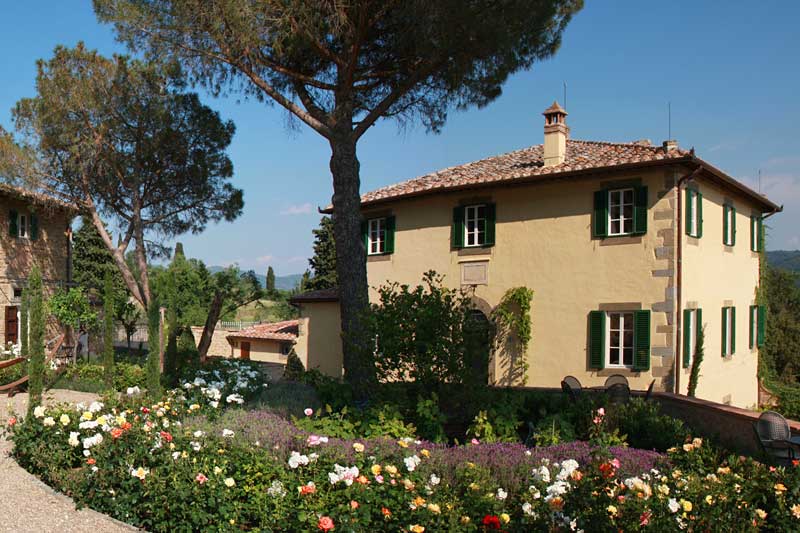ITALIAN LAW
Hello, I’m Giandomenico De Tullio, an Italian attorney who aims to provide high-quality legal services across all areas of Italian law.
Contact
If you have any questions about Italian law or specific areas of interest that you would like me to cover, please do not hesitate to get in touch.
You can contact me directly or visit my company website for more. I’m always happy to help and look forward to hearing from you.

My Legal Expertise
Having practiced law for more than three decades, my main focus is on cross-border property transactions, family law, and inheritance matters. Specifically, I am passionate about these areas of law because I am driven by the desire to assist people in safely purchasing property in Italy and disposing of their Italian assets without any legal complications.
Client-Focused Approach
Because I work closely with each individual, I am able to gain a thorough understanding of their specific needs and objectives. This allows me to tailor my services to each client’s unique circumstances, thereby striving to deliver the best possible outcome for their legal matter. My approach provides personalized legal services that are both practical and effective, ensuring that my clients receive the highest level of attention and care.
In addition, my personalized approach to legal services ensures that clients are fully informed and engaged throughout the entire legal process. By keeping clients informed and involved, I am able to build trust and establish a strong working relationship with each client, which is essential to achieving the best possible outcome for their legal matter.
Professional Memberships and Community Involvement
Being a full member of the Society of Trust and Estate Practitioners (STEP), the world’s leading professional body for practitioners in the field of trusts, estates, and related issues, offers me a wealth of resources and opportunities to enhance my knowledge and expertise. Therefore, my membership in STEP allows me to stay up-to-date with the latest legal developments and trends, providing me with accurate and relevant legal advice to my clients, particularly in complex cases. My membership in STEP also signifies my commitment to upholding the highest professional standards and adhering to a strict code of ethics in my practice. It also grants me access to a global network of fellow professionals and thought leaders in the field of trust and estate planning, which enables me to collaborate and exchange ideas with peers from around the world.
Furthermore, as a regional representative for The American Chamber of Commerce in Italy, I stay connected with the international business community, providing valuable resources and insights. Additionally, my membership in the Italian Chapter of the Order of the Sons of Italy and the Italian Chamber of Commerce and Industry for the UK gives me access to a network of professionals and resources that I can leverage to better serve my clients’ needs.
In addition, I have contributed legal advice to a number of publications and have taught European Private Law. This not only enables me to share my knowledge with others but also helps to educate the next generations of lawyers.
My Blawg
On Italian Solicitor, I share my insights and thoughts on a variety of Italian and international legal topics. Whether you’re a legal professional or someone with a general interest in the law, I welcome your feedback and suggestions for future posts. Additionally, I am always enthusiastic about engaging in dynamic discussions about the constantly evolving landscape of Italian and international law.
BLAWG
Realtor Commission Fees and Payment Schedules in Italy
When planning to purchase a property in Italy, it is essential to understand realtor commission fees and payment schedules. Working with a licensed realtor is usually the first step in the property search, and they have the responsibility to facilitate the transaction...
Building Contract in Italy: Your Rights and Responsibilities
Embarking on a construction or renovation project in Italy? Don't let legal issues and disputes ruin your dream home. The key to a successful project lies in having the right building contract that clearly outlines the terms and conditions for all parties involved....
Matrimonial Regime for Married Couples Buying Property in Italy
When it comes to buying property in Italy, understanding the matrimonial regime that applies to a married couple is essential. Italian spouses have two options to choose from: the community of property/assets regime and the separation of property regime. Where no...
Cultural Pre-emption Right: Buying Luxury Property in Italy
In Italy, the legal definition of luxury properties encompasses immovable assets that possess significant value, both in terms of their material and historical attributes. The Italian Civil Code characterizes such properties by unique, particular, or prestigious...



